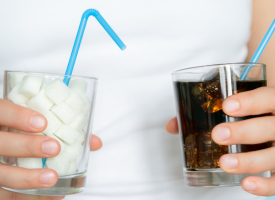Doctors have role to play in keeping sport drug-free
With the XXI Commonwealth Games opening on the Gold Coast this week, the AMA today released its revised Position Statement on Drugs in Sport, calling for doctors and athletes to ensure the event is clean and free from any banned performance-enhancing drugs.
The previous Position Statement was released in 2000 to coincide with the Sydney Olympic Games. It has been updated to reflect developments in doping substances and tests.
AMA President, Dr Michael Gannon, said that the Gold Coast 2018 Commonwealth Games (GC18) will be an opportunity to uphold and enhance Australia’s reputation for drug-free competition at all levels.
“The AMA wishes all 6000 athletes and team officials taking part in GC18 the best of luck over the coming fortnight,” Dr Gannon said.
“We want to see a clean, drug-free Games, where hard work and natural talents make the headlines, not failed drug tests or athletes under clouds.
“Unfortunately, the use of prohibited substances in sport is a global problem, and occurs at many levels of competitive sport.
“Australia has an impressive reputation in the global effort to combat sports doping, and the AMA wants to see this maintained.
“While some athletes deliberately use prohibited substances to improve their performance, others may inadvertently ingest a banned substance in a prescription or over-the-counter medication.
“Doctors have an important role to play in reducing the use of performance-enhancing drugs in sport, and in helping athletes to avoid unwittingly taking banned substances in otherwise legal medications.
“Doctors should advise all patients who take part in competitive sport to check all medications they take against the World Anti-Doping Agency (WADA) Prohibited List.
“The AMA encourages all clinicians to integrate the use of checking tools, such as GLOBALDRO, into their consultations with professional and elite athletes to ensure that no prohibited medications are prescribed.
“Doctors should be aware of potential conflicts of interest between the health of individual athletes and those of teams, as well as possible conflicts between the privacy of athletes and the sharing of individual health records.
“However, medical practitioners have a duty of care to individual athletes, and should never assist any athlete to engage in doping practices or any other unethical performance-enhancing methods.
“Performance-enhancing substances and methods tarnish the health, reputations, and records of athletes and sporting teams, and every appropriate action must be taken to eliminate their use.”
The AMA Position Statement on Drugs in Sport – 2018 can be read in full at https://ama.com.au/position-statement/drugs-sport-2018
Background
- In 2016–17, the Australian Sports Anti-Doping Agency (ASADA) conducted a total of 5,658 tests across 39 sports, and imposed 83 sport bans and 34 sanctions across 13 sports.
- In the same year, it conducted more than 1000 anti-doping tests on athletes competing in Commonwealth Games sports, including 164 tests on foreign athletes expected to compete at GC18.
- More than 6,600 athletes and team officials from 71 Commonwealth nations and territories are expected to take part in GC18.
- Prohibited substances are used to enhance performance, speed up recovery, improve physical appearance and, above all, to give athletes an unfair advantage over competitors.
- These substances often have distinct health risks and are banned as much to protect the safety of athletes as they are to ensure fairness.
- Some substances contained in commonly-used prescription medications, including insulin, and in over-the-counter medications such as pseudoephedrine, are banned in sport due to their performance-enhancing effects.
- Some dietary supplements also contain prohibited substances, which may not be listed on labelling due to less stringent regulations.
- Recreational drugs, including amphetamines, cocaine, and ecstasy-like drugs, are also banned under sporting codes.
- Doctors can apply for a Therapeutic Use Exemption (TUE) to prescribe WADA prohibited medications to athletes if there are no alternative treatments. In 2016-17, the Australian Sports Drug Medical Advisory Committee (ASDMAC) received 259 TUE applications across 50 sports.
3 April 2018
CONTACT: John Flannery 02 6270 5477 / 0419 494 761
Maria Hawthorne 02 6270 5478 / 0427 209 753
Follow the AMA Media on Twitter: http://twitter.com/ama_media
Follow the AMA President on Twitter: http://twitter.com/amapresident
Follow Australian Medicine on Twitter: https://twitter.com/amaausmed
Like the AMA on Facebook https://www.facebook.com/AustralianMedicalAssociation



